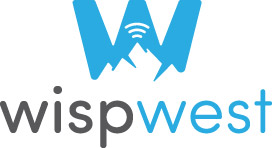Troubleshooting slow Internet Connections
Before running a speed test, you may want to make sure that there are no other devices downloading, uploading, streaming or updating. Shutting down these other devices allows for a more precise speed test. You might also want to check and make sure the device you plan on running the test on isn’t downloading, uploading, streaming or updating as well.
Try bypassing the router by pulling out the LAN or Internet cable from the back of the router and plugging it directly into your Computer. You might want to unplug the power to the router since your computer will still be connected wirelessly. After a minute, your computer should automatically detect that it’s connected via LAN right to the LAN POE box. Try running the speed test now.
- There may still be something connected to the WiFi that was downloading while you were running speed tests. You might need to hunt down that device and disconnect it from the network.
- Or it could be that your WiFI is unsecured and someone who is not authorized like a neighbor might be using it. You would need to log into the router and add a password to your WiFi.
- There also could be some form of Interference. Sometimes other remote devices use the same frequencies as a wireless router. Devices such as Baby Monitors, microwaves, other devices with remotes will cause interference being too close to each other.
- There may be an alignment issue with the dish on the outside. Is it shooting through Trees? Were there high winds recently?
- We might need to get a tech out there to see what’s going on. At the start of the Spring seasons, the new greenery from the tree’s often causes internet slowdowns because of the new growth in front of the dishes.
- Did it recently snow or rain? There could be some snow buildup on your dish that needs wiped off. Or if there is heavy rain out, the rain could be interrupting the signal from the dish to the tower and/or the backup links are running.
- There could be something you are not aware of downloading on the computer you speedtested, like a Windows 10 update that is secretly running in the background.
In any case, if you see you are not getting the right download or upload speeds, please call our tech support department at 406-222-5454 or email us at support@wispwest.net with a time you tried running your speedtest and the result of your speedtest, and we can see what’s going on.
Troubleshooting Email
Below is Important Information you need to setting up your email on your computer, tablet or smart phones:
Username is your full email address. My_Email@wispwest.net (or tctwest.net)
Incoming mail server type is IMAP
Incoming mail server is mail.tctwest.net
Outgoing mail server is mail.tctwest.net
If you were once able to send and receive e-mail and no longer can, there is a chance that your account has been compromised. Please call our tech support offices and we will be able to update your password and troubleshoot over the phone.
If you forgot your e-Mail password, please call in and talk to one of our tech supports.
The Webmail can be accessed by clicking on This WEBMAIL Link.
Distributed Denial of Service (DDoS) Attacks
A distributed denial-of-service (DDoS) attack is a malicious attempt to disrupt normal traffic of a targeted server, service or network by overwhelming the target or its surrounding infrastructure with a flood of Internet traffic. DDoS attacks achieve effectiveness by utilizing multiple compromised computer systems as sources of attack traffic. Exploited machines can include computers and other networked resources such as IoT devices. From a high level, a DDoS attack is like a traffic jam clogging up with highway, preventing regular traffic from arriving at its desired destination.
This is a very serious attack. Not only does it disrupt traffic to you, it disrupts traffic to our whole Wispwest.net infrastructure and our customers. It effects every customer who depends on us to provide them with reliable internet.
Although there are still attacks that target websites and other online services, most attacks today are targeting online gamers and their online behavior / voice communication. We ask if you do play games online, be respectable and avoid joining parties & communicating with players you are not familiar with.
Our only defense at this time against these attacks is blackholing the IP that is being attacked. During this process, our network loses internet until new a new route is established. This drops the connection to all our subscribers. Your connection has been giving a unique IP for future monitoring in case this happens again.
In the US, denial-of-service attacks may be considered a federal crime under the Computer Fraud and Abuse Act with penalties that include years of imprisonment. The Computer Crime and Intellectual Property Section of the US Department of Justice handles cases of (D)DoS. If you are aware of who attacked you, please report them through the respected service you were using at the time. These attacks not only hurt you and Wispwest.net, but everyone using our services.
Please take the time and review your online activities and the people using it. Do virus scans on your computers, and make sure your computers are up to date with the latest anti-malware and anti-virus tools and secured.
- First Hit – Warning & connection assigned public IP
- Second Hit – Internet disabled for 24 hours (IP is blackholed)
- Third Hit – Services disconnected for violation of Terms of Service.
DDoS and VPNs
One of the biggest protections you can do to yourself against DDoS attacks is using a VPN service. A VPN service allows you to “tunnel” into another server and hide your Wispwest.net IP, not only from the people performing these attacks, but from other malicious users/bots etc.
Some popular VPNS that protect against DDoS attacks
ExpressVPN – https://www.get-express-vpn.com/
CyberGhost – https://www.cyberghostvpn.com/en_US/
Surfshark VPN – https://surfshark.com/
NordVPN – https://nordvpn.com/
VyprVPN – https://get.vyprvpn.com/
Gaming
Most DDoS attacks today are to Gamers either by their communications to other players or their gaming tactics (cheating). By either using a VPN or changing the gaming tactics, people you game with or games you play can greatly reduce being targeted by malicious people online.

